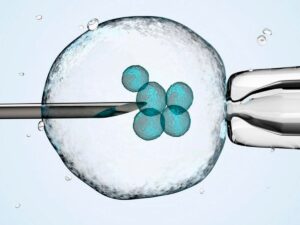Sperm donation is a vital option for individuals and couples facing fertility challenges, including single women, LGBTQ+ families, and those with male infertility. It enables parenthood through artificial insemination or IVF, using sperm provided by a donor who meets strict eligibility and health standards. The process is regulated to ensure safety, ethical compliance, and the well-being of both donors and recipients.
To become a sperm donor, candidates must meet specific criteria. Most clinics require donors to be between 18 and 39 or 45 years old, in good physical health, and free from serious genetic or hereditary conditions. A thorough medical history, sometimes spanning two generations, is reviewed to eliminate hereditary disease risks. Donors must also abstain from smoking, drug use, and excessive alcohol consumption, as these can affect sperm quality. Educational background, occupation, and lifestyle habits are often documented, and some clinics prefer donors who are pursuing or have completed higher education.
The screening process is comprehensive and includes physical exams, genetic testing, and screening for infectious diseases such as HIV, hepatitis, and STIs. Semen analysis is performed to assess sperm count, motility, morphology, and overall quality. Psychological assessments are also common, ensuring donors are mentally prepared and understand the implications of donation. Donors must provide informed consent, relinquishing any parental rights and legal responsibilities for children conceived through their donation.
Once a donor passes all screenings, the donation process begins. Donors usually provide semen samples in a private setting at a clinic. These samples are then frozen and stored, undergoing a quarantine period-often three to six months-to ensure ongoing health and safety. Routine follow-up screenings are conducted to confirm the donor remains free of infectious diseases. Only after all tests are cleared is the donor’s sperm made available for use in fertility treatments.
Recipients select a donor based on health, genetic background, and sometimes personal characteristics. Clinics and sperm banks prioritize confidentiality and provide counseling to both donors and recipients to address any emotional or ethical concerns. Legal frameworks, such as those set by the Human Fertilisation and Embryology Authority (HFEA) in the UK, govern compensation, usage limits, and donor anonymity, ensuring transparency and protection for all parties involved.
Compensation for donors varies by clinic and country, typically covering time and travel expenses rather than serving as a significant source of income. However, many donors find the experience rewarding, knowing they are helping others achieve their dream of parenthood.
Sperm donation also contributes to medical research in reproductive health, genetics, and fertility treatments, supporting advancements in the field. While the process is generally straightforward, it requires a commitment of time and a willingness to undergo repeated testing and follow-ups.
Ethical considerations remain at the forefront, with donors needing to navigate the emotional complexities of potential future connections with donor-conceived children. Open communication, counseling, and a clear understanding of legal rights and responsibilities are essential for a positive experience.
In summary, sperm donation is a carefully regulated, multi-step process involving strict screening, legal safeguards, and emotional support. It offers hope to many aspiring parents while requiring donors to meet high standards of health, responsibility, and ethical awareness.











